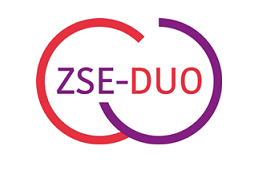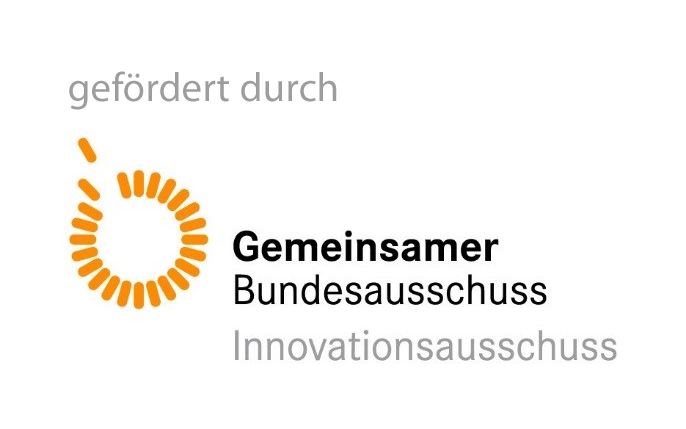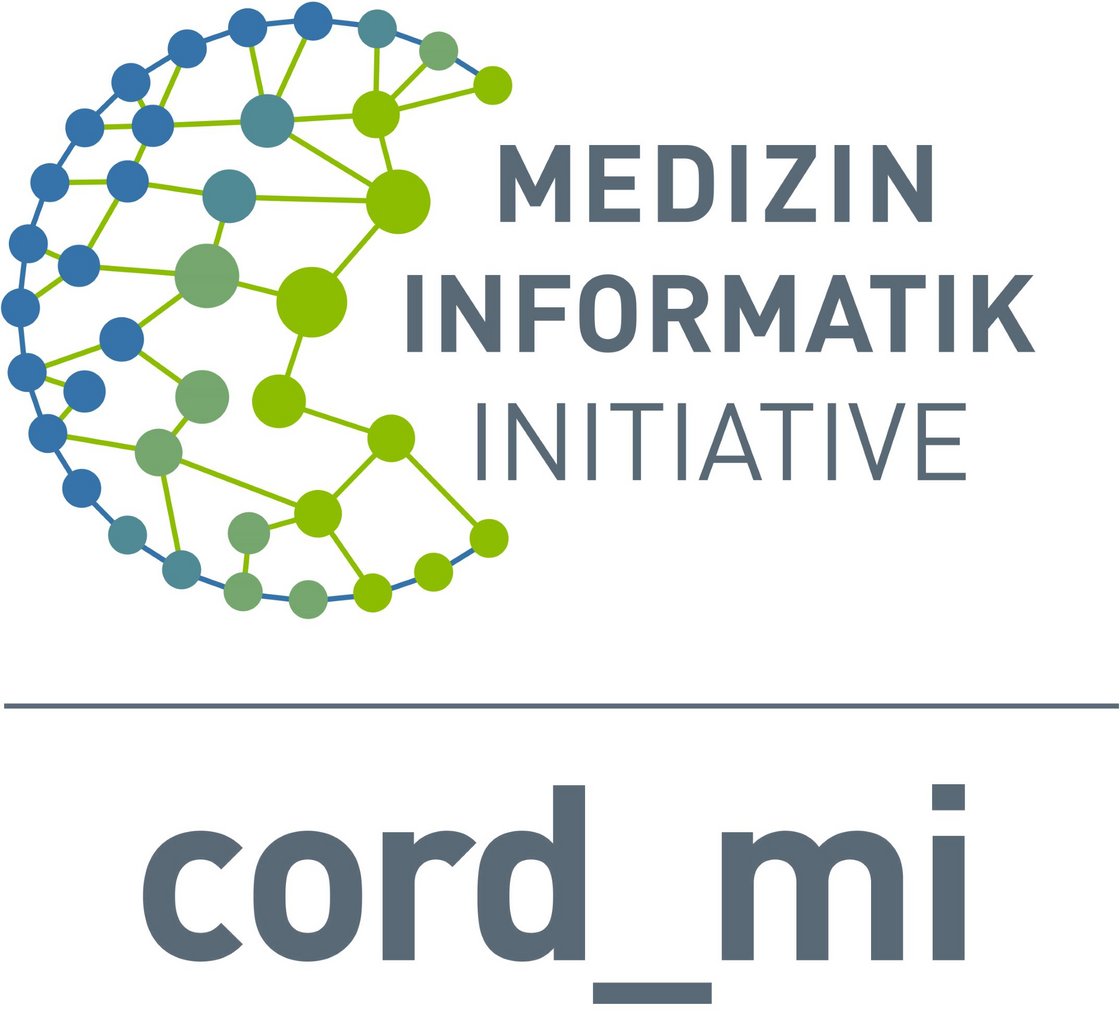Research
Dual pilot structure to clarify unclear diagnoses in centers for rare diseases / ZSE-DUO


The aim of the new form of care is to improve the treatment of people suspected of having a rare disease and thus to increase the proportion of confirmed diagnoses.
In the ZSE-DUO project, 11 centers for rare diseases in Germany, the Alliance of Chronic Rare Diseases Axis e.V and health insurance companies work closely together.
The project is funded by the joint federal committee's innovation fund.
Project start: October 1st, 2018
Main focus: rare diseases / psychosomatics / psychiatry
- Project information
- You can find more information about the project here:
- Documents for patients
- Contact ZSE Ulm
- Project partner
- Publications
Project information
Patients with no confirmed diagnosis and a suspected rare disease who are at least 12 years old.
Only patients with statutory health insurance can be included in the project.
Downloads:
Information flyer
You can find more information about the project here:
Website
Website ZSE-Duo
Consortium management
University Hospital Würzburg - Center for Rare Diseases - Reference Center Northern Bavaria
Prof. Dr. Helge Hebestreit
Josef-Schneider-Str. 4th
97080 Wuerzburg
Tel. +49 (0) 931 / 201-29001
zese@ukw.de
www.zese.ukw.de
Project management at ZSE Ulm
Center for Rare Diseases (ZSE) Ulm
Prof. Dr. Klaus-Michael Debatin
Ulm University Hospital
Center for Rare Diseases (ZSE) Ulm
Eythstrasse 24
89075 Ulm
zse@uniklinik-ulm.de
Contact person ZSE Ulm:
Dr. Susanne Müller
Senior physician in neurology
Department of Neurology at the University of Ulm, RKU
Upper Eselsberg 45
89081 Ulm
Tel. +49 (0) 731 / 177-5225
Doctor-medic Lavinia Bârlescu
Specialist in neurology
Department of Neurology at the University of Ulm, RKU
Ulm University Hospital
Upper Eselsberg 45
89081 Ulm
lavinia.barlescu@uniklinik-ulm.de
Tel. +49 (0) 731 / 177-5235
Mrs. Bettina Hilbig
Coordination assistance
bettina.hilbig@uniklinik-ulm.de
zse@uniklinik-ulm.de
Dr. med. Christiane Imhof
Assistant doctor
Clinic for Psychosomatic Medicine and Psychotherapy
Albert-Einstein-Allee 23
89081 Ulm
christiane.imhof@uniklinik-ulm.de
Phone: +49 (0) 731 / 500-61876
Documents for patients
Dear patient,
download the necessary forms for participating in the project here and fill out the documents carefully or have them completed by your family doctor.
Documents for project participation:
Patient inquiry form
Registration form at a center for rare diseases
Contact ZSE Ulm
Phone: +49(0)731/500-57080
Fax: +49(0)731/500-57058
Email: zse@uniklinik-ulm.de
Post address:
Zentrum für Seltene Erkrankungen (ZSE)
Eythstraße 24
89075 Ulm
Project partner
- Center for Rare Diseases, RWTH Aachen University Hospital
- Clinic for Pediatric and Adolescent Medicine, University Medicine of the Ruhr University Bochum
- Frankfurt Reference Center for Rare Diseases, University Hospital of the Goethe University Frankfurt
- Center for Rare Diseases of the Hannover Medical School
- Central German competence network for rare diseases, university medicine of the Otto-von-Guericke University Magdeburg
- Center for Rare Diseases of the Nervous System, University Medicine of Johannes Gutenberg University Mainz
- Center for Rare Diseases at the Clinic for Child and Adolescent Medicine, University Clinic of the Westphalian Wilhelms University of Münster
- Center for Rare Diseases, Regensburg University Hospital
- Center for Rare Diseases, University Hospital of the Eberhard Karls University of Tübingen
- Center for Rare Diseases, Ulm University Hospital
- Center for Rare Diseases - Reference Center Northern Bavaria, University Hospital Würzburg
- Alliance of Chronic Rare Diseases ACHSE e. V.
- IKK healthy plus
- Techniker Krankenkasse
- Julius Maximilians University of Würzburg - Institute for Clinical Epidemiology and Biometry
- University Medical Center Hamburg Eppendorf - Institute for Medical Psychology
- Cooperation partner: AOK Hessen
Witt S, Kristensen K, Blömeke J, Hebestreit H, Wocker M, Pfister L, Bullinger M, Tüscher O, Deckert J, Graessner H, Lapstich AM, Zwaan M, Mundlos C, Quitmann JH (2023)
[Quality of Life and Experienced Distress of Patients Suspected of having a Rare (Chronic) Health Condition - Initial Findings from the ZSE-DUO Study].
Psychotherapie, Psychosomatik, Medizinische Psychologie 2023 Jan; 73(1): 9-15
Zur Publikation
Schippers C, Volk D, de Zwaan M, Deckert J, Dieris-Hirche J, Herpertz S, Schulz JB, Hebestreit H; ZSE-DUO Arbeitsgruppe (2022)
[ZSE-DUO – dual guidance structure at the centre for rare diseases].
Die Innere Medizin (Heidelberg) 2022 Jul; 63(7): 791-797
Zur Publikation
Hebestreit H, Zeidler C, Schippers C, de Zwaan M, Deckert J, Heuschmann P, Krauth C, Bullinger M, Berger A, Berneburg M, Brandstetter L, Deibele A, Dieris-Hirche J, Graessner H, Gündel H, Herpertz S, Heuft G, Lapstich AM, Lücke T, Maisch T, Mundlos C, Petermann-Meyer A, Müller S, Ott S, Pfister L, Quitmann J, Romanos M, Rutsch F, Schaubert K, Schubert K, Schulz JB, Schweiger S, Tüscher O, Ungethüm K, Wagner TOF, Haas K; ZSE-DUO working group (2022)
[Dual guidance structure for evaluation of patients with unclear diagnosis in centers for rare diseases (ZSE-DUO): study protocol for a controlled multi-center cohort study].
Orphanet Journal of Rare Diseases 2022 Feb 14; 17(1): 47
Zur Publikation
CORD MI
Der Use Case "Collaboration on Rare Diseases" (CORD-MI) ist ein die vier Konsortien der Medizininformatik-Initiative umfassendes Verbundvorhaben, an dem zahlreiche deutsche Universitätsklinika und Partnerinstitutionen beteiligt sind. Ziel ist die Verbesserung von Versorgung und Forschung im Bereich der Seltenen Erkrankungen.
Weiterführende Informationen:
Use Case CORD-MI | Medizininformatik-Initiative
Further Research
- Stem cell therapy for rare congenital bone marrow diseases
- Therapy for genetic dermatoses, rare collagenoses and collagenosis-related vasculitides or primary system vasculitides as well as tooth stabilisation in systemic scleroderma:
Therapy of genetic dermatoses
Treatment of rare collagenosis and tooth stabilisation in systemic scleroderma
Therapy for collagenosis-related vasculitis
Therapy for primary system vasculitis - Tooth mobilisation in case of genetically caused tooth eruption disorders
- Slowing down of progressive muscular dystrophy
- Gene therapy of spinal muscular atrophy
- Division of Pediatric Endocrinology and Diabetes
https://www.uniklinik-ulm.de/kinder-und-jugendmedizin/forschung-research/prof-wabitsch-group.html
